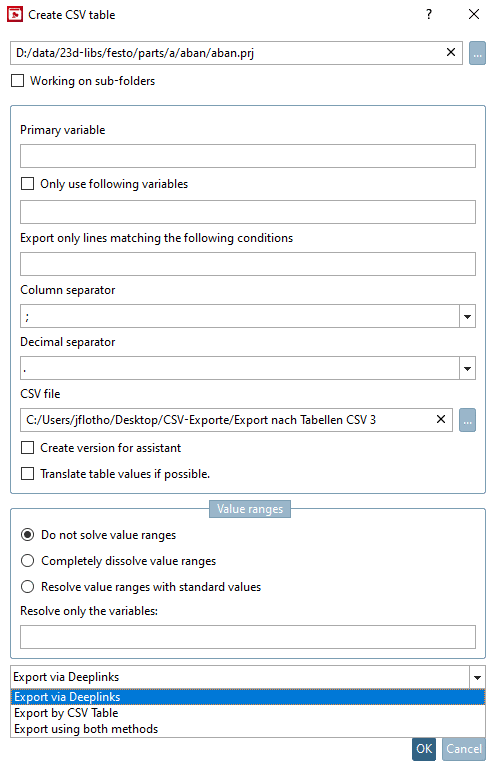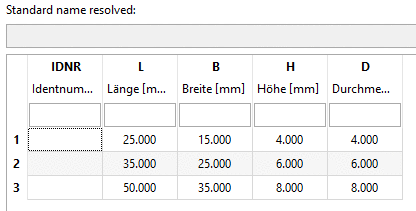The contents of the *.tab files of a directory can be read out and listed in a separate file (text and/or excel file).
The *.csv file thus generated can be compared to original company tables.
![[Note]](https://webapi.partcommunity.com/service/help/latest/pages/jp/ecatalogsolutions/doc/images/note.png) | Note |
|---|---|
In many cases, instead of Create CSV table, better use the function Generate deeplinks. | |
A *.csv file of this directory may have already been applied. In this case compare the content of the -possibly changed- directory to existing *.csv file.
You must indicate the Primary variable of both tables and set a checkmark at Update. This variable must be unique. It may not contain identical column values.
In the CSV file field enter the storage location of the table at hand.
If all variables shall be exported (including NN,NT, FILE_NAME,MIDENT...), leave all options empty.
Only use following variables: Enter the variables to be exported. Also default variables are exported.
Export only lines matching the following conditions: For this, FORTRAN-Syntax has to be used.
Example: If you only want to export the first two rows, use the following condition:
B.EQ.15.OR.B.EQ.25



